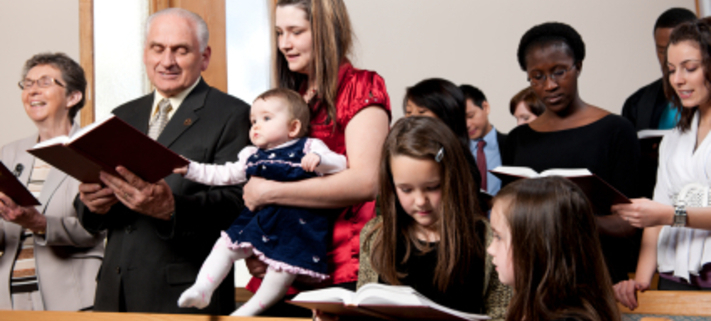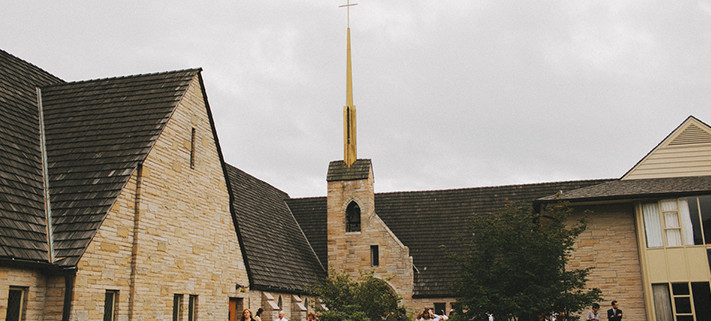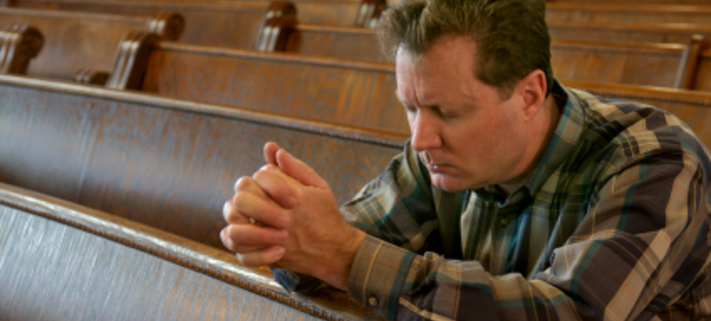Do I have to worship in a church?
Have you ever grilled with charcoal? I used to do it all the time. To get the coals started, I would pile them up, spray some lighter fluid on them, and then apply a match at several strategic locations. Those coals would begin to burn, and eventually they would be hot enough for cooking.
But sometimes my pile wasn’t quite what it needed to be. On those occasions, some of the coals would roll off the pile, over towards the edge of the grill. Almost without fail, those coals would quit burning. To get those coals lit again, I’d have to push them back over to the burning pile, and soon enough those individual coals would be burning also.
When it comes to our spiritual life, you and I are a lot like those coals. We tend to need to feed off other believers, to be encouraged by them, to be inspired by them. God says it this way: “Let us hold unswervingly to the hope we profess, for he who promised is faithful. And let us consider how we may spur one another on toward love and good deeds. Let us not give up meeting together, as some are in the habit of doing, but let us encourage one another–and all the more as you see the Day approaching.” (Hebrews 10:23-25)
So, is it important for me to gather with fellow believers? Yes, it is. God urges us to do so. When you gather with other believers, not only do they encourage you, but you give encouragement to them. Just by being there, you tell others that you believe in Jesus, that God’s work is important to you, that spiritual matters are your priority. That gives wonderful encouragement to others! And you’re doing it just by gathering with those fellow believers.
Now, to be clear, God also hasn’t told us how to do that gathering. So, it wouldn’t necessarily have to be in a church. It could happen in a variety of other ways. (Like, for example, a home Bible study group.) God doesn’t command a specific way to do it.
At the same time, Christians throughout history have gathered in a “church-like” setting. In fact, Jesus himself did so. In the book of Luke we read, “He (i.e. Jesus) went to Nazareth, where he had been brought up, and on the Sabbath day he went into the synagogue, as was his custom” (Luke 4:16a, emphasis added). Jesus went to worship at the synagogue. In our way of speaking, “Jesus went to church.” And, he did so customarily. If it made sense for Jesus – the Son of God – to go to church regularly, might it not also make sense for us? Sure!
Now I’ll quickly confess – I’m not always really excited about going to church, about attending worship or Bible study. That’s because I’m a sinful human being. So we go back to that Luke passage above, hearing that Jesus went to the synagogue regularly, and we thank God! Why so? Because Jesus was living a perfect life, and doing so in your place and in my place. Remember, Jesus not only paid for our sins on the cross, but He also lived a perfect life in our place. When God put faith in your heart, God gave you credit for the perfect life which Jesus led. So now God looks at you and at me as being perfect and holy, just as Jesus was! And that includes our worship life; because Jesus worshiped perfectly, God considers you to have worshiped perfectly, too.
Wow! That’s good news! That God would consider me to be … perfect?!? That’s awesome! So, what would I like to say to God? Well, I’d like to say “Thank you!” Correct? Sure! Gathering with other believers can be a wonderful way to do so!
There are other thoughts involved. For example, which church would I want to attend? I want to attend a church which is teaching all the truths of the Bible accurately. What if there isn’t a church like that near me? Well, perhaps I’ll have to get videos, or access worship opportunities on the internet, or perhaps God might use me to be part of starting a congregation which teaches all the truths of the Word accurately. Those are difficult situations.
But the general thought is, “Yes, God wants me to gather with my fellow believers, and to do so regularly.” Why so? Because God wants to encourage me with His Word, wants me to be encouraged by other believers, and wants to give me the honor of giving encouragement to others. Blessings on your “gatherings!”










